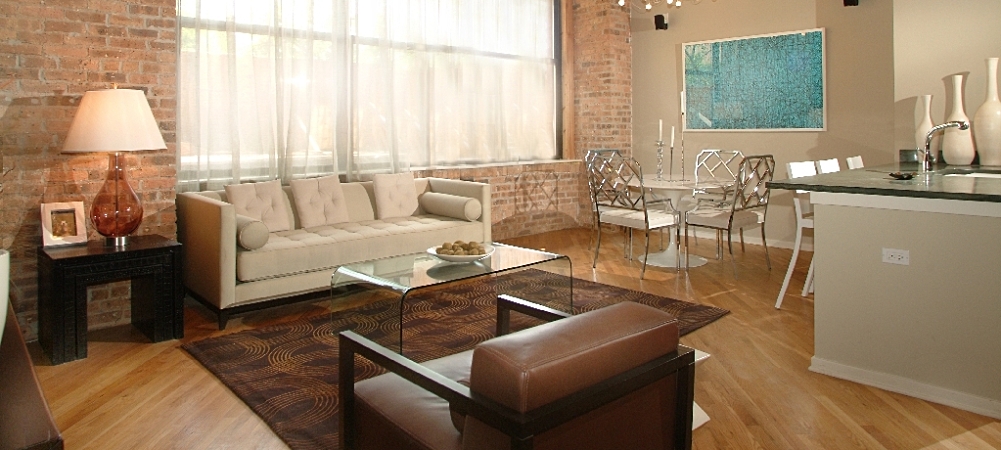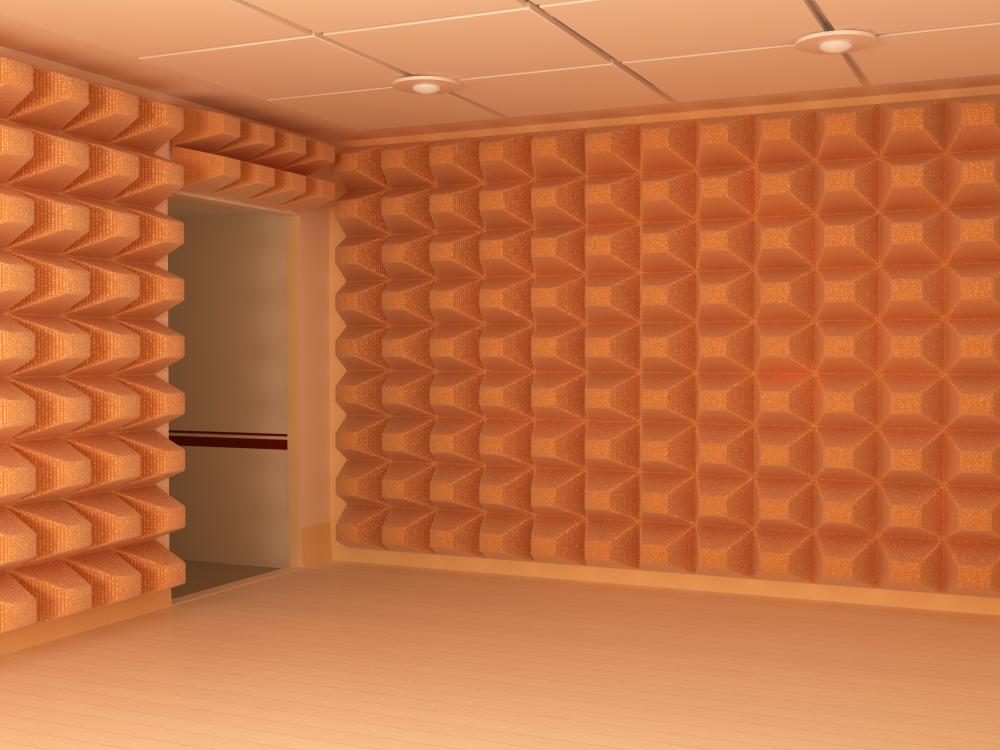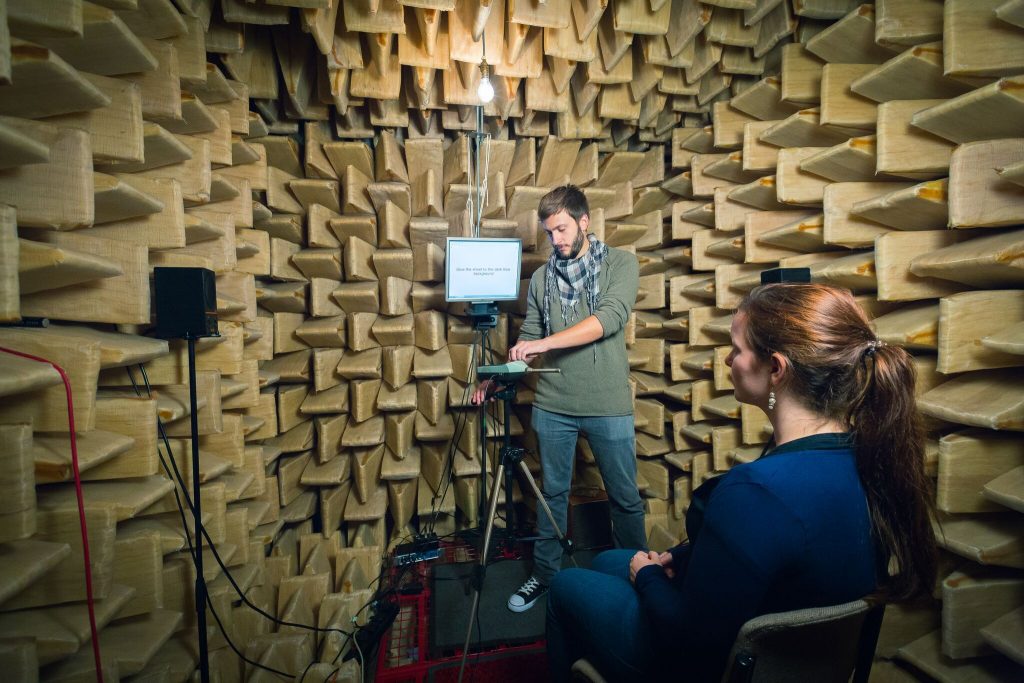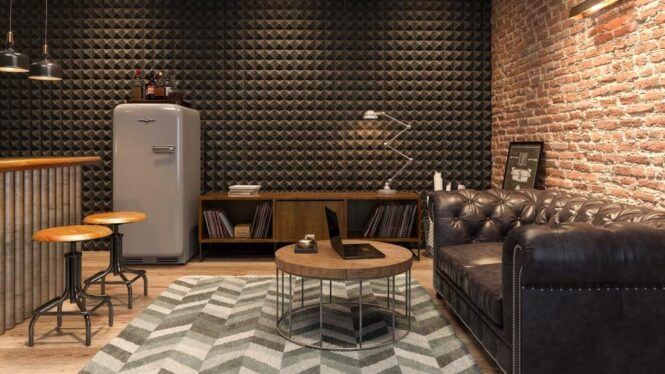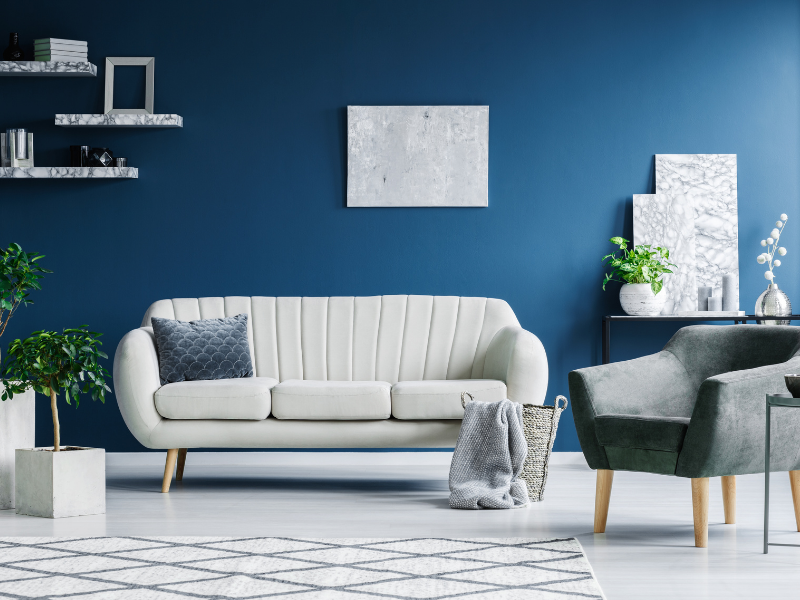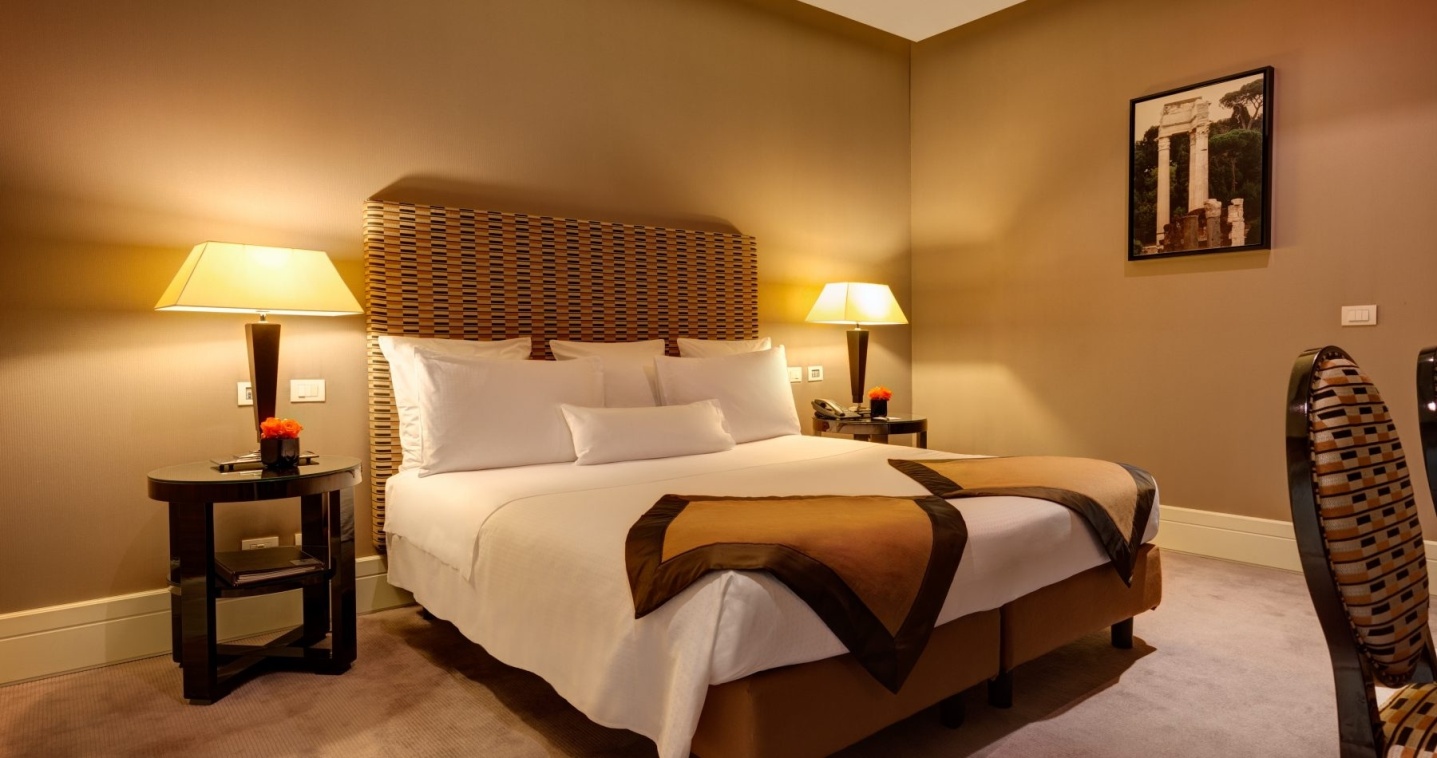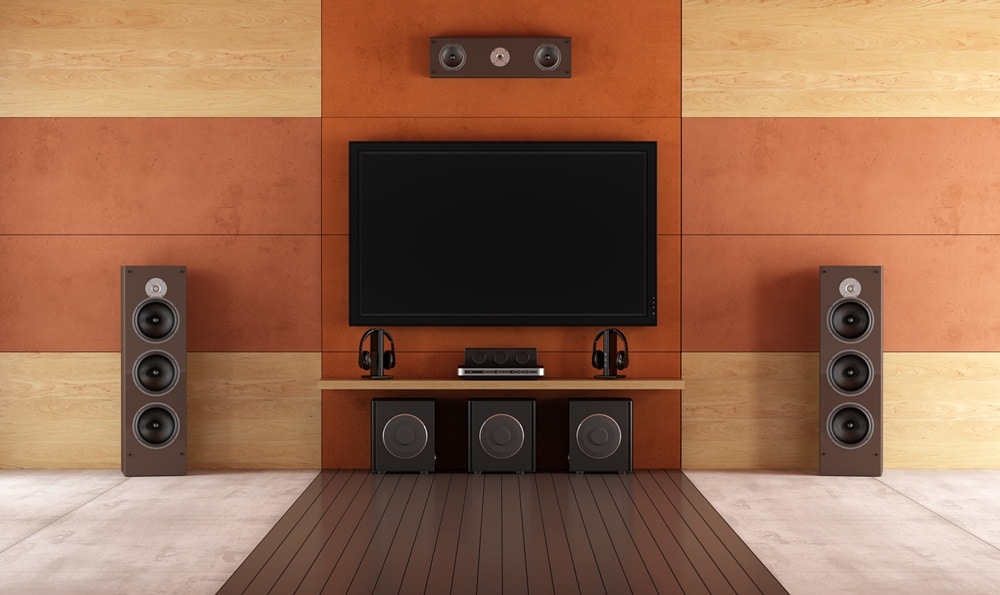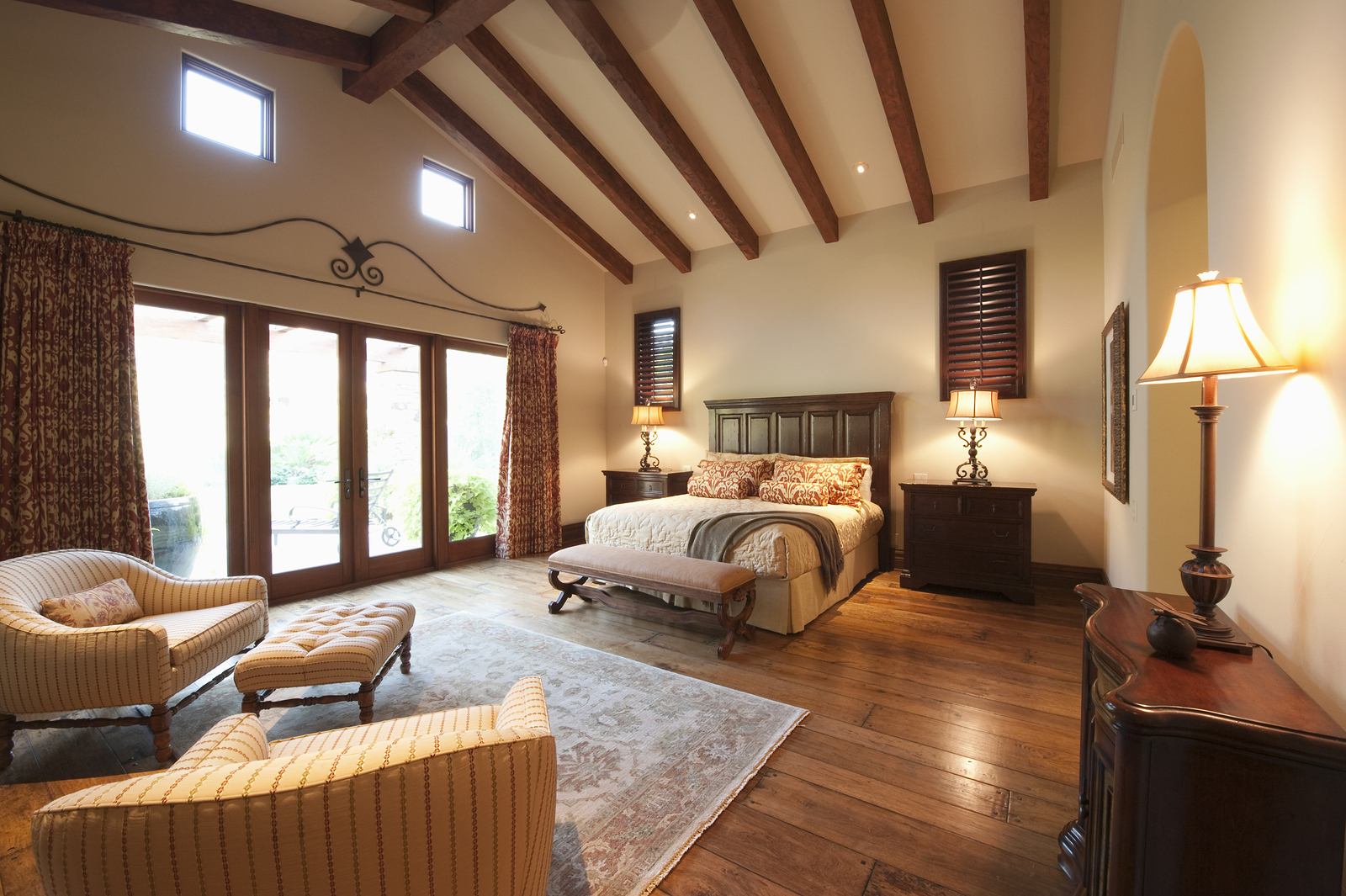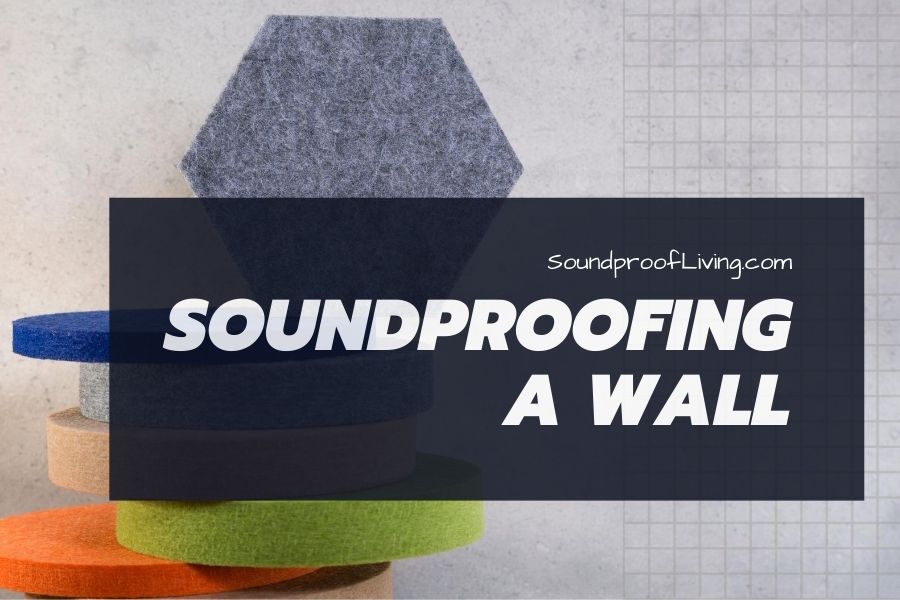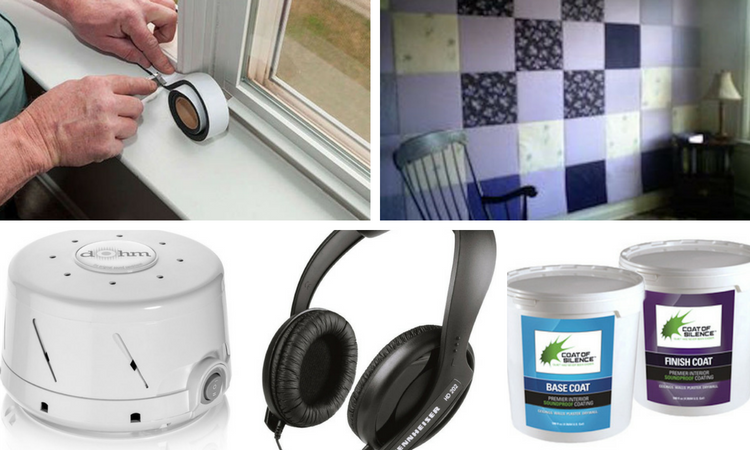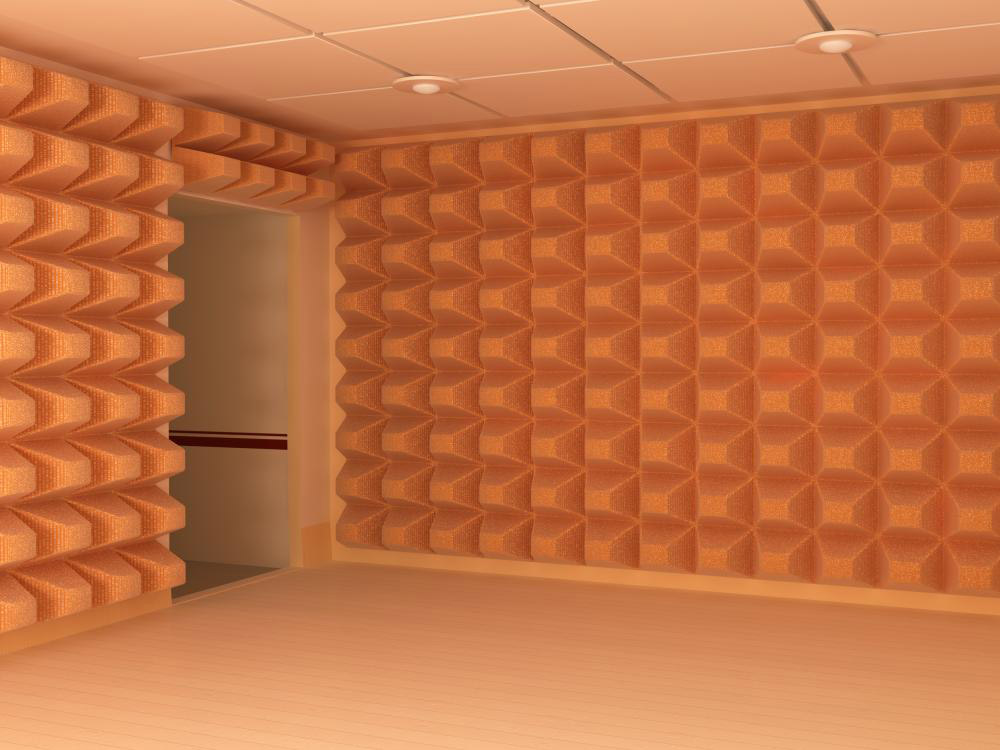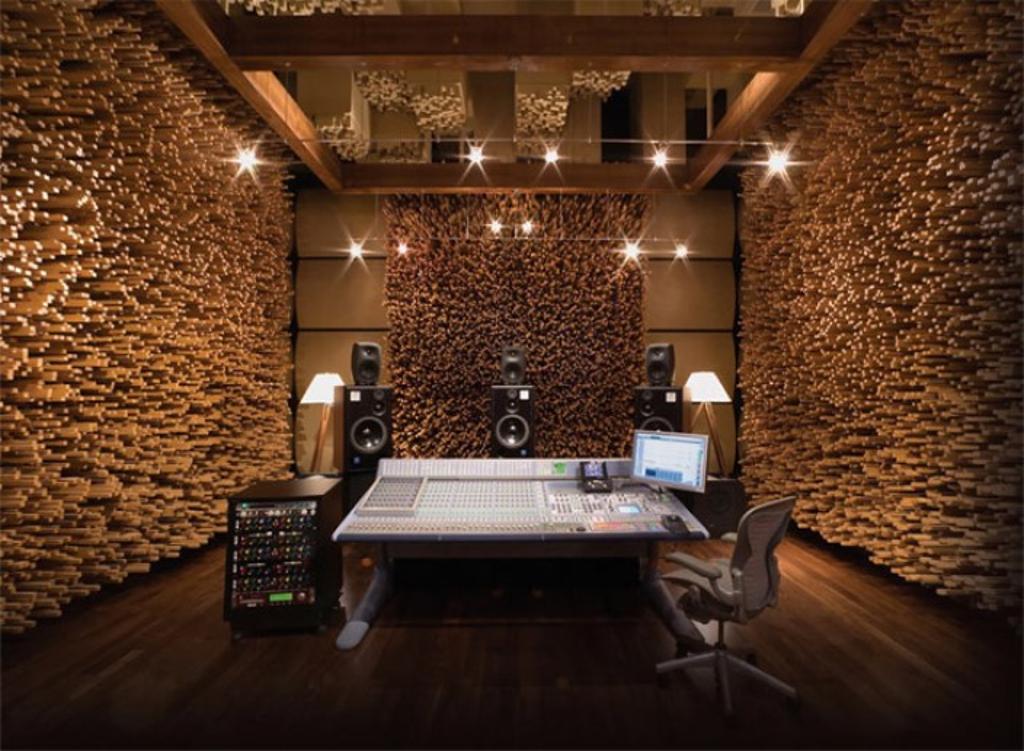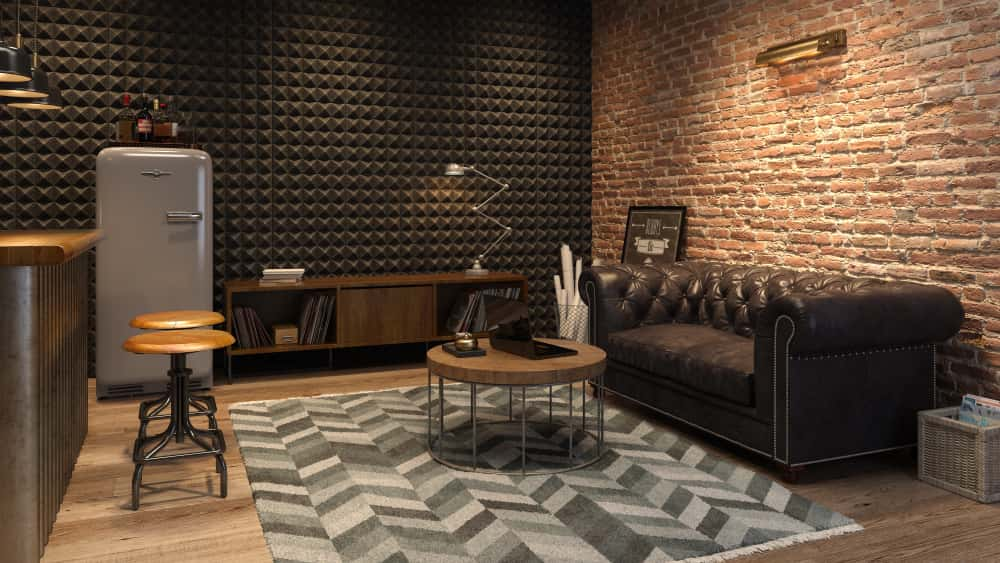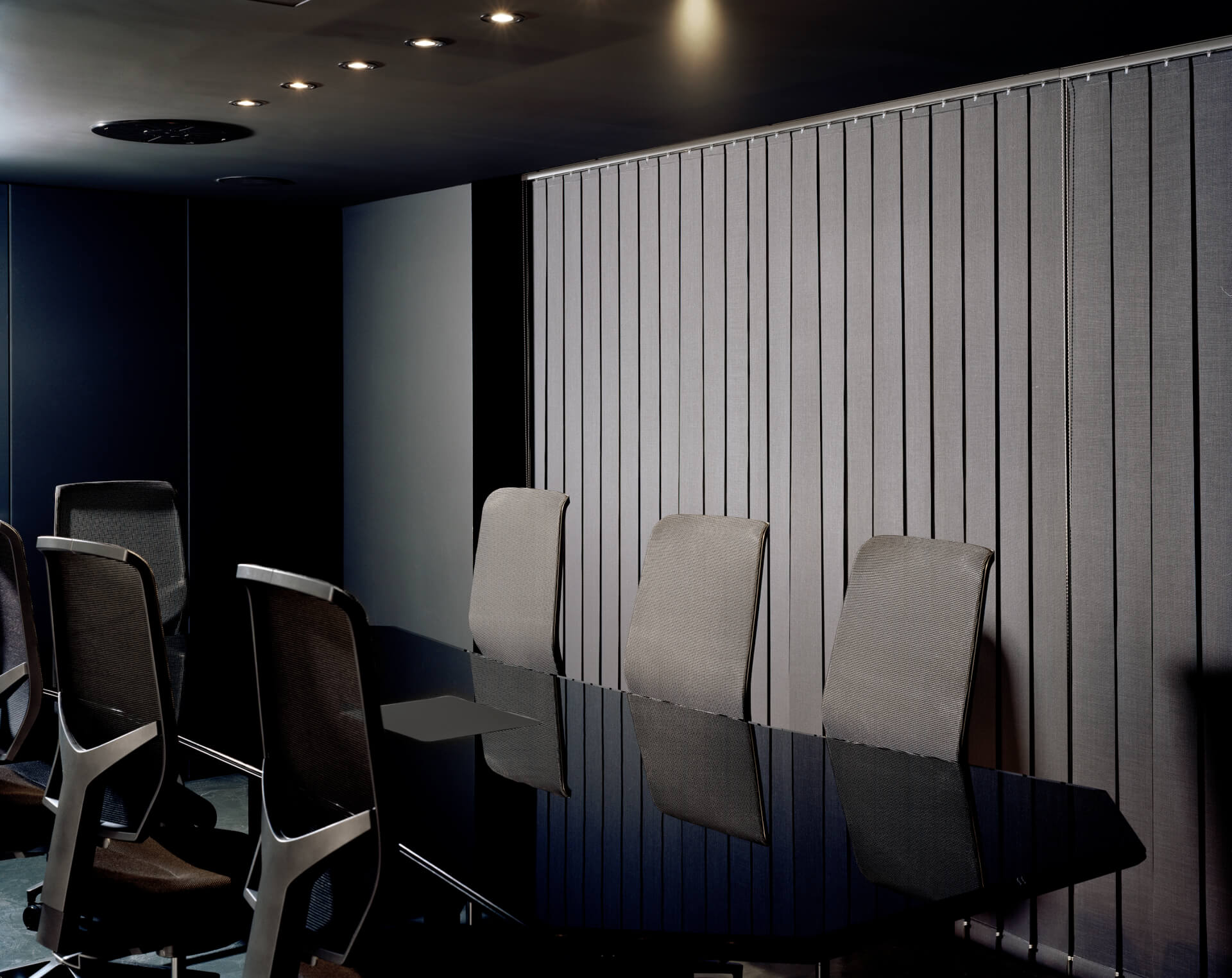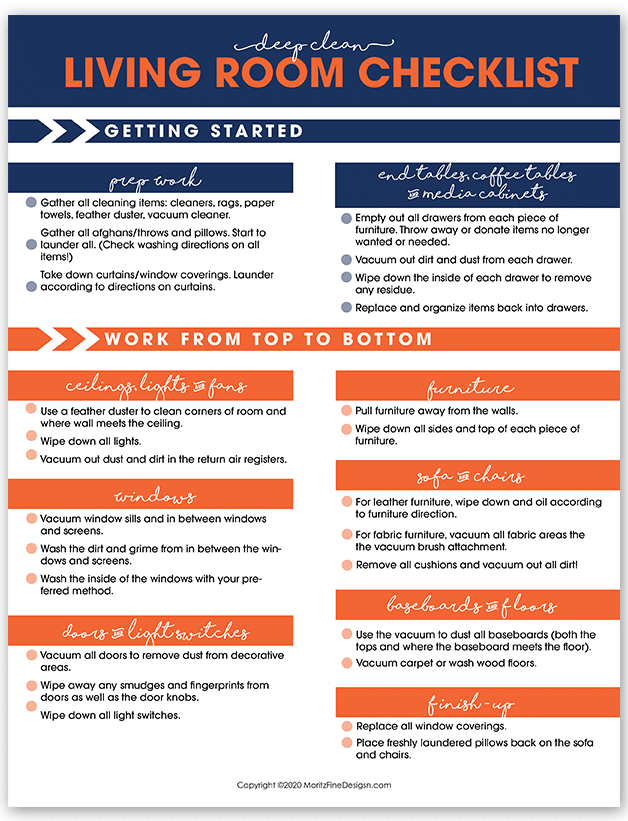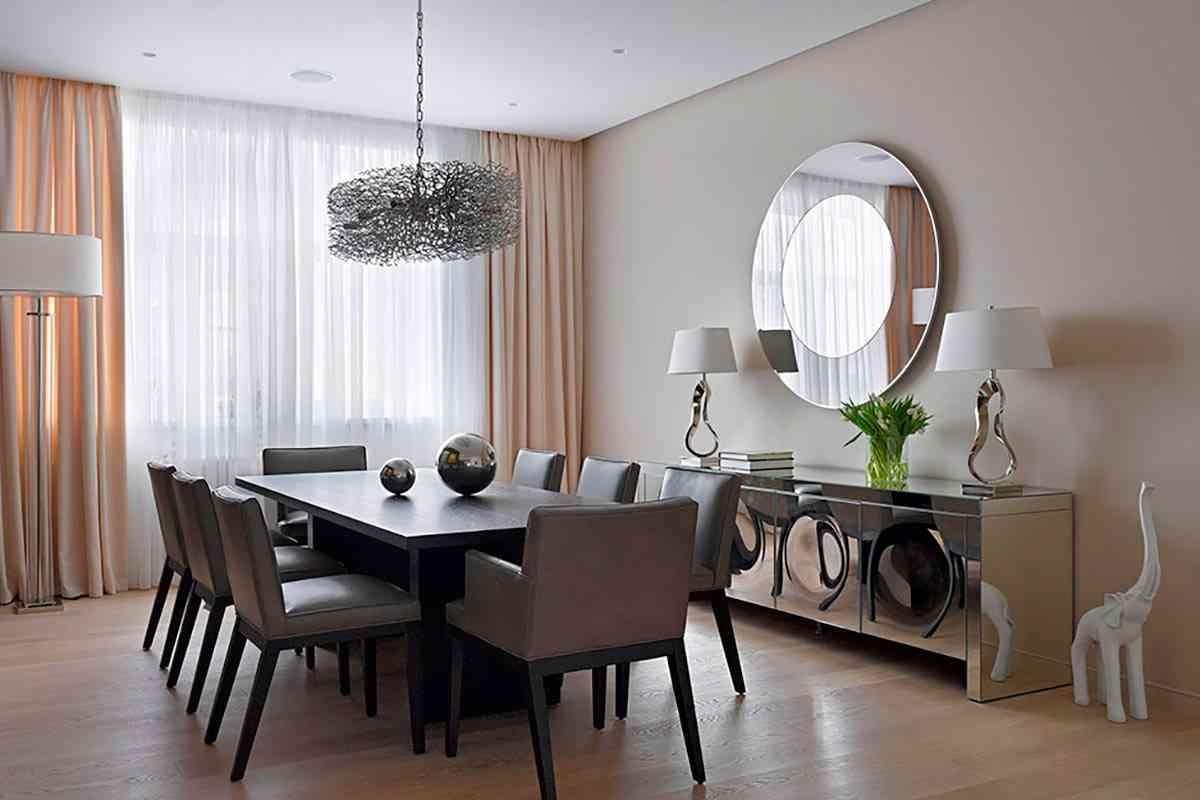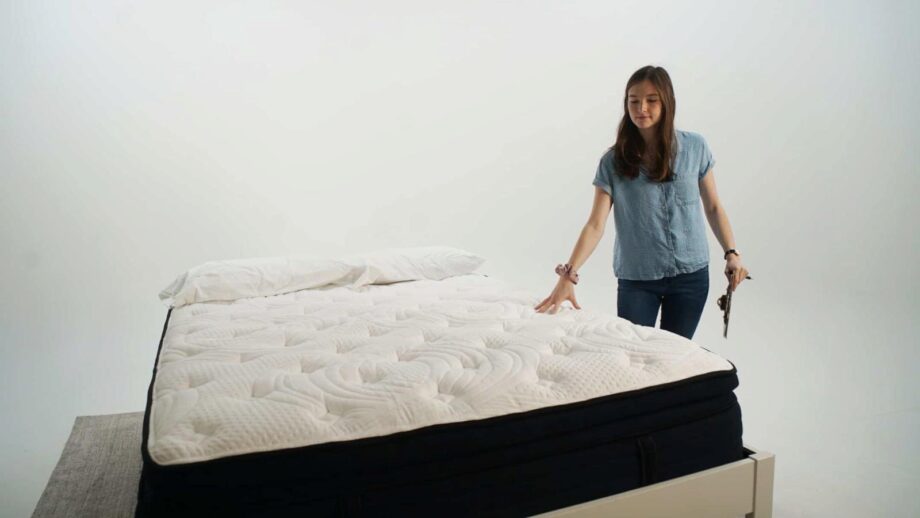If you're tired of hearing your neighbors' conversations or being disturbed by traffic noise, it's time to soundproof your living room. This space is where you relax, spend time with family and friends, and enjoy some peace and quiet. But when outside noises invade your home, it can be hard to find that tranquility. That's why soundproofing your living room is essential for creating a peaceful and comfortable living space.Soundproofing a Living Room: How to Reduce Noise in Your Home
Soundproofing your living room doesn't have to be a daunting task. With the right techniques and materials, you can significantly reduce noise and create a more serene environment. Here are seven tips to help you get started: 1. Seal air leaks: Gaps around windows and doors are one of the main sources of noise in a living room. Make sure to seal these air leaks with weatherstripping or caulk to keep outside noises at bay. 2. Use sound-absorbing materials: Soft materials such as carpets, rugs, and curtains can help absorb sound and reduce echoes in your living room. Choose heavy, thick fabrics for maximum noise reduction. 3. Opt for double glazing: If your living room windows are single-paned, consider upgrading to double-glazed windows. They are more effective at blocking out noise and also offer better insulation, helping you save on energy bills. 4. Add soundproofing panels: Soundproofing panels, such as acoustic foam or sound-absorbing tiles, can be installed on walls and ceilings to reduce noise. They are easy to install and can significantly improve the sound quality in your living room. 5. Use bookshelves: Bookshelves not only add character to your living room but can also act as a barrier to block out noise. Fill them with books and other items to create a sound-absorbing wall. 6. Consider a soundproofing door: If the noise from your living room door is a problem, consider replacing it with a soundproof door. These doors are designed to block out noise and have a higher density than standard doors. 7. Use soundproof curtains: Adding soundproof curtains to your living room windows can help reduce noise from outside. These curtains are made with sound-absorbing materials and can be a stylish addition to your living room decor.Soundproofing a Living Room: 7 Tips to Reduce Noise
There are many ways to soundproof your living room, and the key is to use a combination of techniques for maximum effectiveness. Here are some additional ways to keep your living room quiet: 1. Hang acoustic art panels: Art panels made with sound-absorbing materials can be hung on walls as a decorative and functional way to reduce noise. 2. Install a soundproof ceiling: If your living room is on the ground floor, consider installing a soundproof ceiling to block out noise from the floors above. 3. Use soundproof wallpaper: Soundproof wallpaper, also known as acoustic wallpaper, can be used to cover your walls and reduce noise levels in your living room. 4. Add plush furniture: Plush, upholstered furniture can help absorb sound and reduce echoes in your living room. Opt for furniture with thick cushions and fabric for maximum noise reduction. 5. Limit hard surfaces: Hard surfaces, such as hardwood floors and bare walls, can contribute to noise reverberation in your living room. Consider adding area rugs and fabric wall hangings to reduce echoes. 6. Soundproof your media center: If your living room is where you watch TV or listen to music, it's essential to soundproof the media center area. Use sound-absorbing materials and consider adding a soundproofing curtain or panel around the media center to reduce noise leakage. 7. Use a white noise machine: White noise machines can help mask outside noises and create a more peaceful atmosphere in your living room. You can also use a white noise app on your phone or smart speaker. 8. Consider soundproofing windows: If you have single-paned windows or can't afford to upgrade to double-glazed windows, consider using a window plug or insert to reduce noise from outside. 9. Soundproof your floors: If you have a living room on the upper floor, soundproofing your floors can help reduce noise from footsteps and other activities. You can use sound-absorbing underlayment or add carpet or rugs to reduce noise. 10. Hang soundproofing curtains: In addition to soundproof curtains for your windows, you can also hang them on doors to reduce noise from other areas of the house.Soundproofing a Living Room: 10 Ways to Keep Your Space Quiet
When it comes to soundproofing your living room, there are many options to choose from. You can use a combination of techniques and materials to create a quieter and more peaceful living space. Some soundproofing solutions to consider include: 1. Acoustic foam: Acoustic foam is a popular choice for soundproofing walls and ceilings. It is made with sound-absorbing materials and comes in various shapes and sizes, making it easy to customize for your living room. 2. Mass-loaded vinyl: Mass-loaded vinyl, or MLV, is a flexible and dense material that can be installed between walls or under flooring to reduce noise. It is also an effective sound barrier for soundproofing doors and windows. 3. Soundproofing paint: Soundproofing paint, also known as acoustic paint, contains sound-absorbing materials and can be used on walls and ceilings to reduce noise levels in your living room. 4. Green glue: Green glue is a sound-damping compound that can be applied between layers of drywall to reduce noise transmission. It is an effective solution for soundproofing walls and ceilings in your living room. 5. Soundproofing curtains: Soundproof curtains are made with heavy, sound-absorbing materials and can be used on windows and doors to reduce noise levels in your living room.Soundproofing Solutions for Your Living Room
Soundproofing your living room may seem like a daunting task, but with the right techniques and materials, it can be a manageable DIY project. This comprehensive guide has provided you with tips and solutions to help you reduce noise levels in your living room and create a more peaceful environment. Remember to use a combination of techniques and materials for maximum effectiveness, and don't be afraid to seek professional help if needed. With a little effort, you can soundproof your living room and enjoy a quieter and more serene living space.Soundproofing Your Living Room: A Comprehensive Guide
Soundproofing your living room doesn't have to break the bank. There are many easy and affordable options to help reduce noise levels and create a more peaceful living space. Some budget-friendly soundproofing options include: 1. DIY solutions: From using rugs and curtains to adding weatherstripping around doors and windows, there are many DIY techniques you can use to reduce noise in your living room without spending a lot of money. 2. Upcycling materials: You can repurpose old materials, such as egg cartons or old towels, to create sound-absorbing panels or curtains for your living room. 3. Shopping for deals: Keep an eye out for sales and discounts on soundproofing materials, such as acoustic foam or MLV, to get the best deals for your budget. 4. Using household items: You can use items you already have at home, such as blankets, pillows, or furniture, to help reduce noise in your living room.Soundproofing Your Living Room: Easy and Affordable Options
If you prefer to take the DIY route, there are many techniques you can use to soundproof your living room. Here are some ideas to get you started: 1. Build soundproof panels: Soundproof panels made with acoustic foam or MLV can be easily built and installed on walls and ceilings to reduce noise. 2. Create a soundproof door: You can soundproof a standard door by adding layers of mass-loaded vinyl or dense foam to create a barrier against noise. 3. Use weatherstripping: Weatherstripping can be used to seal gaps around doors and windows and prevent outside noise from entering your living room. 4. Install a soundproof curtain: Soundproof curtains can be hung on windows and doors to reduce noise levels in your living room. You can also make your own using sound-absorbing materials and heavy fabric. 5. Build a bookshelf wall: Using bookshelves to create a wall can help block out noise and add a decorative touch to your living room. Fill the shelves with books and other items for maximum sound absorption.Soundproofing Your Living Room: DIY Techniques for a Quieter Space
If DIY soundproofing is not your cup of tea, you can always seek professional help. There are many companies that offer soundproofing services and products that can help reduce noise levels in your living room. Some popular options include: 1. Acoustic panels: Many companies offer pre-made acoustic panels that can be easily installed on walls and ceilings to reduce noise. 2. Soundproof doors and windows: You can purchase and install soundproof doors and windows to block out noise from outside. 3. Soundproofing insulation: Companies offer insulation materials that are specially designed for soundproofing walls and ceilings. 4. Professional soundproofing services: If you're not confident in your DIY skills, you can hire a professional soundproofing company to assess your living room and provide customized solutions.Soundproofing Your Living Room: Professional Services and Products
When it comes to soundproofing your living room, there are some common mistakes you should avoid to ensure maximum effectiveness. These include: 1. Neglecting air leaks: Air leaks around doors and windows can significantly reduce the effectiveness of your soundproofing efforts. Make sure to seal any gaps to keep outside noise at bay. 2. Not using enough materials: It's essential to use enough sound-absorbing materials to create a barrier against noise. Don't skimp on materials, as this can compromise the effectiveness of your soundproofing efforts. 3. Not blocking sound from all sources: When soundproofing your living room, make sure to consider all sources of noise, including doors, windows, and walls. Sound can travel through any opening, so it's essential to address all areas. 4. Using the wrong materials: Not all soundproofing materials are created equal. Make sure to research and use materials specifically designed for sound absorption to get the best results.Soundproofing Your Living Room: Common Mistakes to Avoid
There are many benefits to soundproofing your living room, including: 1. Increased comfort: A soundproof living room can provide a more comfortable and peaceful environment for relaxation and spending time with loved ones. 2. Improved sleep: If your living room is close to a busy street or other noisy areas, soundproofing can help you get a better night's sleep by reducing outside noise. 3. Increased home value: Soundproofing your living room can be an attractive selling point for potential buyers, making your home more valuable. However, there are also some considerations to keep in mind when soundproofing your living room, such as: 1. Cost: Depending on the techniques and materials used, soundproofing your living room can be a significant investment. Make sure to set a budget and research affordable options. 2. Effectiveness: Soundproofing can significantly reduce noise levels, but it may not completely eliminate all outside noises. Keep your expectations realistic and use a combination of techniques for maximum effectiveness. 3. Maintenance: Some soundproofing materials, such as acoustic foam, may require regular cleaning and maintenance to ensure they continue to effectively reduce noise. With these benefits and considerations in mind, you can make an informed decision about soundproofing your living room.Soundproofing Your Living Room: Benefits and Considerations
The Importance of Soundproofing Your Living Room

Noise Pollution and its Effects
 In today's fast-paced world, noise pollution has become a common problem in many households. With the increasing noise levels from traffic, construction, and even neighboring homes, it can be challenging to find peace and quiet in your own living room. The constant sound of honking horns, loud music, and chatty neighbors can cause stress, fatigue, and even hearing damage. This is where soundproofing comes in.
Soundproofing
is the process of reducing the amount of sound that enters or escapes a room. By adding sound-absorbing materials to your living room, you can effectively block out external noise and create a peaceful and serene environment.
In today's fast-paced world, noise pollution has become a common problem in many households. With the increasing noise levels from traffic, construction, and even neighboring homes, it can be challenging to find peace and quiet in your own living room. The constant sound of honking horns, loud music, and chatty neighbors can cause stress, fatigue, and even hearing damage. This is where soundproofing comes in.
Soundproofing
is the process of reducing the amount of sound that enters or escapes a room. By adding sound-absorbing materials to your living room, you can effectively block out external noise and create a peaceful and serene environment.
Benefits of Soundproofing Your Living Room
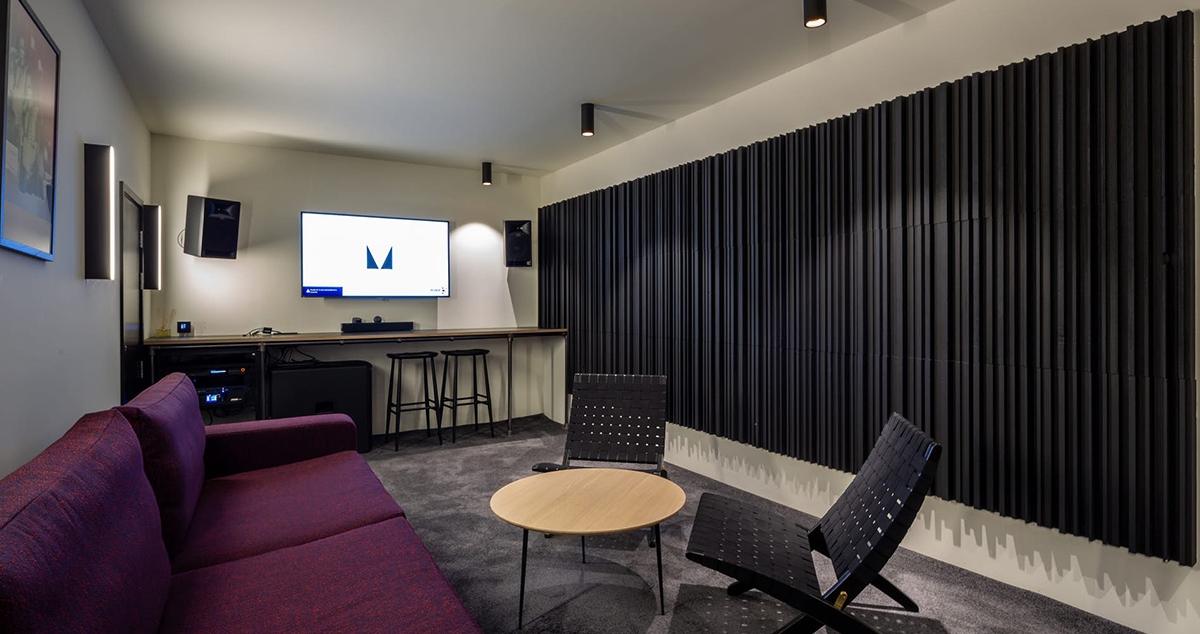 Not only does
soundproofing
provide a more comfortable and peaceful living space, but it also has numerous other benefits. Here are some reasons why you should consider soundproofing your living room:
Not only does
soundproofing
provide a more comfortable and peaceful living space, but it also has numerous other benefits. Here are some reasons why you should consider soundproofing your living room:
Improved Sleep Quality
A noisy environment can be a major hindrance to a good night's sleep. With soundproofing, you can create a quiet and calming atmosphere, ensuring a more restful and undisturbed sleep.Increased Privacy
Soundproofing can also provide increased privacy in your living room. It can prevent your conversations and activities from being heard by your neighbors or anyone passing by your home.Better Acoustics
If you enjoy watching movies or listening to music in your living room, soundproofing can greatly enhance your experience. By reducing external noise, you can fully immerse yourself in the sound without any distractions.The Soundproofing Process
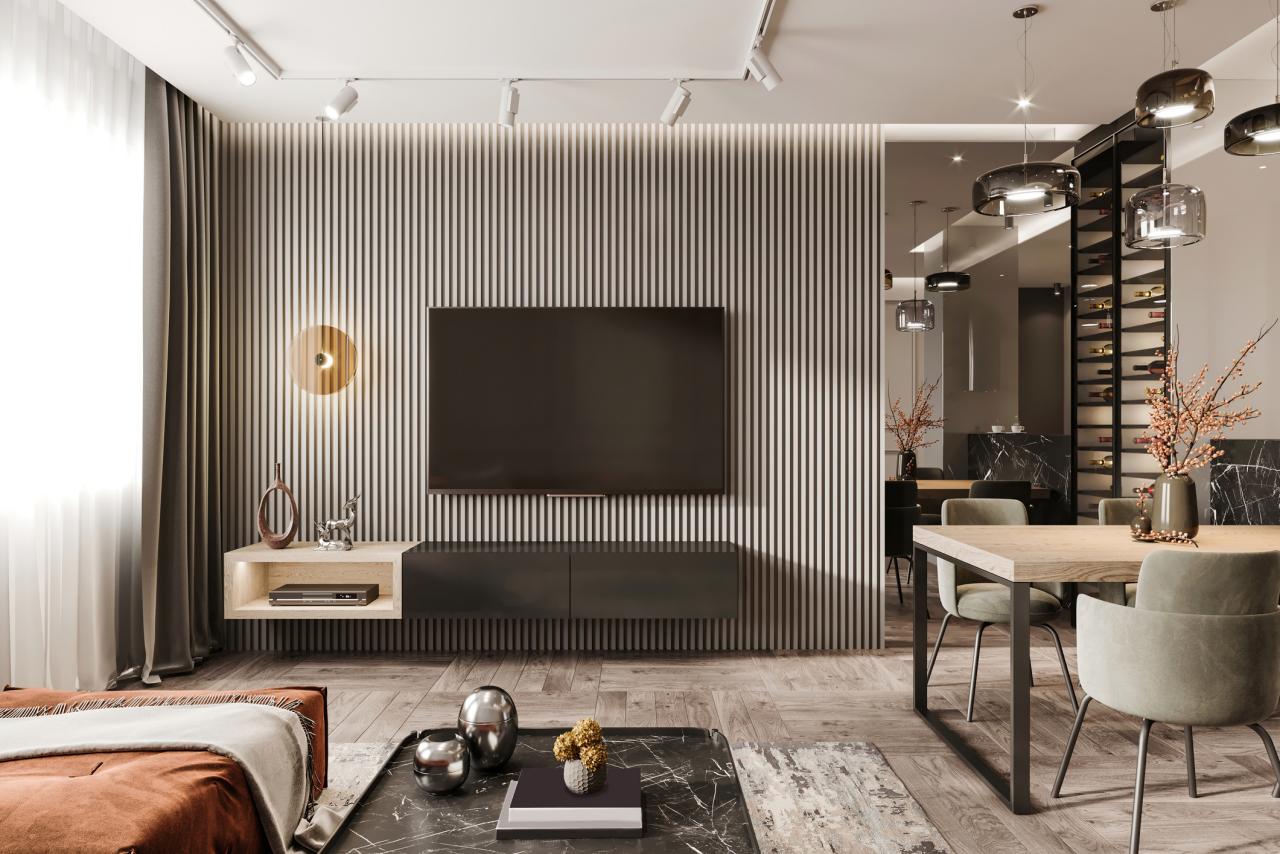 There are various methods of soundproofing your living room, depending on your budget and level of noise pollution. You can choose to install soundproofing materials on your walls, ceilings, and floors, or opt for soundproofing curtains or rugs.
Acoustic panels
are a popular choice for soundproofing walls. These panels are made of sound-absorbing materials such as foam, cork, or fabric, and can significantly reduce noise levels in your living room.
For the floors,
carpeting
or
rugs
can help absorb sound and reduce its transmission to other rooms. Thick and heavy curtains can also be used to block out external noise from windows.
There are various methods of soundproofing your living room, depending on your budget and level of noise pollution. You can choose to install soundproofing materials on your walls, ceilings, and floors, or opt for soundproofing curtains or rugs.
Acoustic panels
are a popular choice for soundproofing walls. These panels are made of sound-absorbing materials such as foam, cork, or fabric, and can significantly reduce noise levels in your living room.
For the floors,
carpeting
or
rugs
can help absorb sound and reduce its transmission to other rooms. Thick and heavy curtains can also be used to block out external noise from windows.
Conclusion
 In conclusion, soundproofing your living room is a worthwhile investment that can greatly improve your quality of life. It not only provides a peaceful and quiet living space but also has numerous additional benefits. So, if you want to create a serene and stress-free environment in your home, consider soundproofing your living room today.
In conclusion, soundproofing your living room is a worthwhile investment that can greatly improve your quality of life. It not only provides a peaceful and quiet living space but also has numerous additional benefits. So, if you want to create a serene and stress-free environment in your home, consider soundproofing your living room today.




